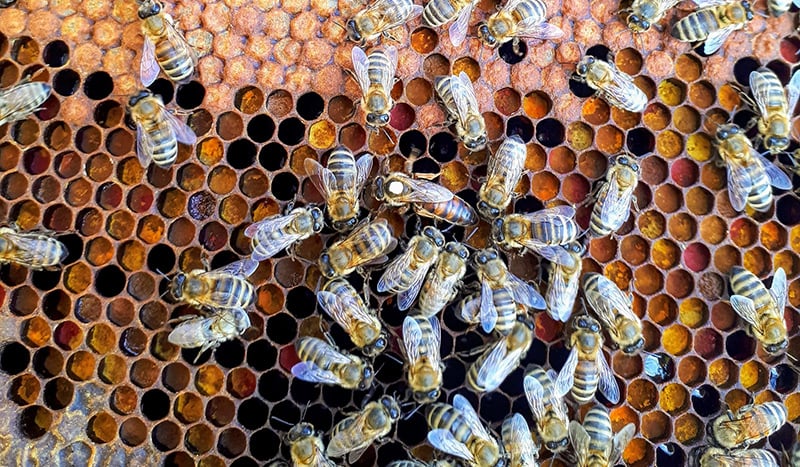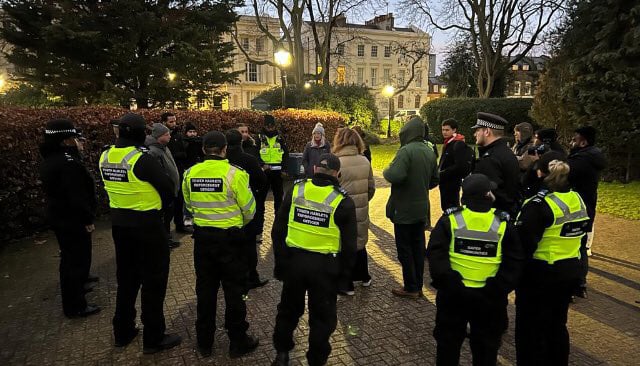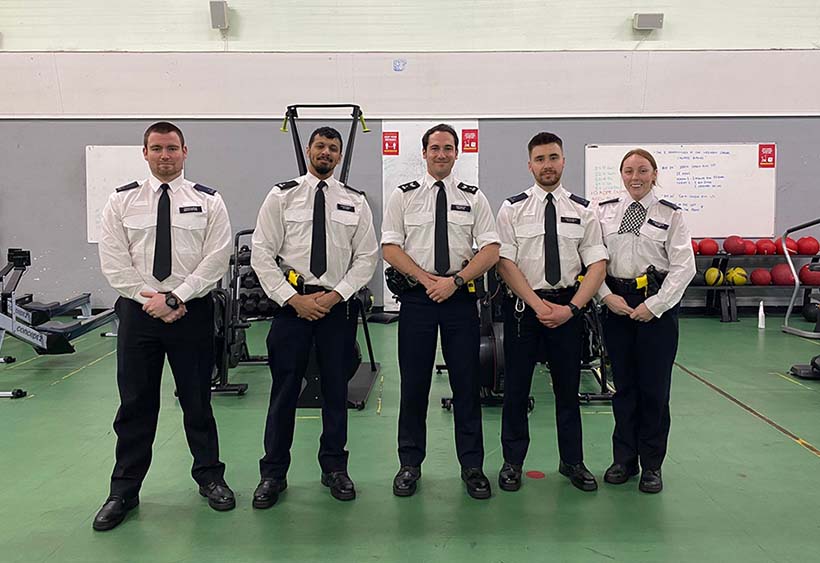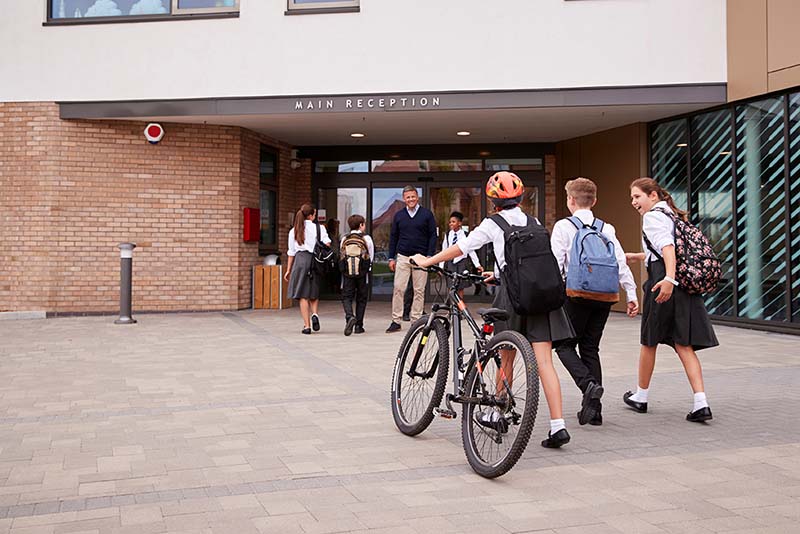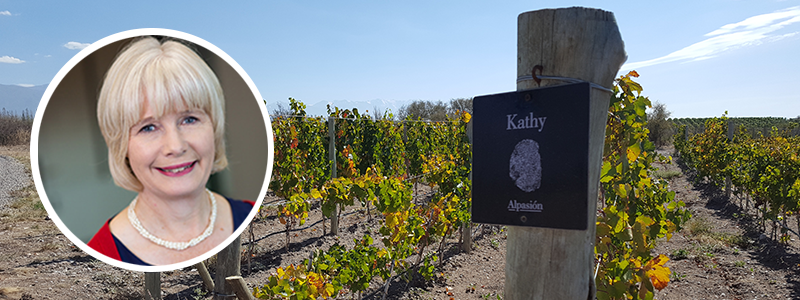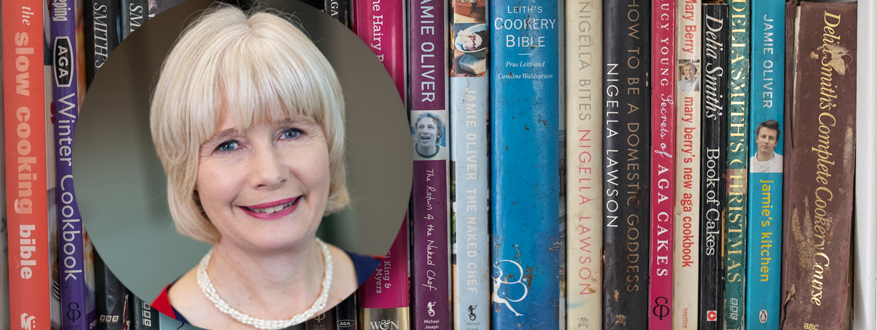I have learned a lot from bees. I started keeping bees for almost entirely selfish reasons. I love honey and my late neighbour, a longstanding beekeeper, encouraged me to stop raiding his supplies, and start building my own.
Since I did, I have learned to appreciate that these amazing little creatures do so much more for me than produce a delicious addition to my toast.
We all have heard about the decline of bees and other pollinators and that decline’s impact on agriculture; I live in an area surrounded by farms, which means my bees are helping to feed me in other ways, too.
They are also good for my wellbeing. Bees are extremely sensitive to pheromones, and not just their own. If I inspect a hive while angry or frustrated, the bees react similarly. I have learned to be outwardly calm and quiet for inspections, and this simple trick leads to those feelings being genuinely felt. This isn’t unique to me: my son – whose nature is even less synonymous with serenity than my own – is incredibly calm with the bees; he can calm an agitated colony with his own actions and demeanour in very little time. (As I write this, it has occurred to me that this is something the Police frequently do in their interactions with the public.)
The longer I have them, the more I realise the bees’ way of life is one which resonates with our own. Each bee has a critical role in its community that will change as they grow and develop, starting with being a nurtured and carefully tended larva, moving on to taking on nursery duties themselves, before earning their wings and moving into the glory role of collecting nectar, pollen and tree-bud sap (which they mix with saliva and wax to make a REALLY strong glue).
There is a critical role for those reaching retirement: they keep the hive safe, clean and running smoothly. Bees are builders, gatherers, food and glue manufacturers, midwives, nurses, cleaners, administrators, defenders, police and so much more… They are also master communicators. I have not heard that they use verbal communication but in addition to using their pheromones, they gesture, touch and perform a special dance we call a waggle dance.
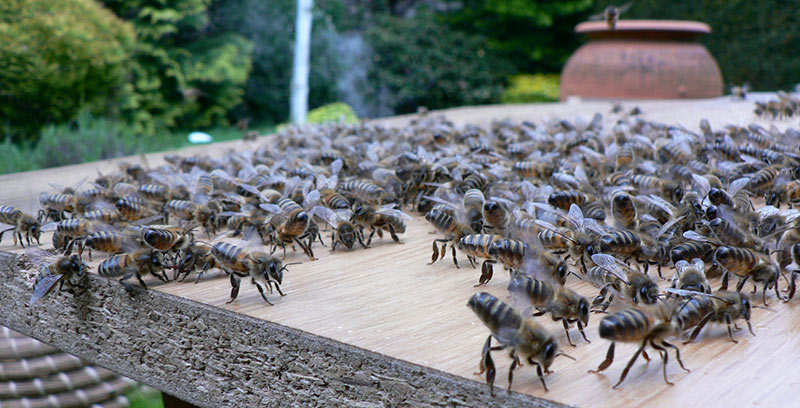
Image: Bees fanning out pheromones
This is used by a worker to explain to her sisters where she has found a particularly good source of nectar. She performs this dance as she arrives home, laden with what she has gathered. She goes off to deposit her savings, and some of the other workers travel directly to where she has been, sometimes several miles away, and usually taking a straight route there, when the original worker would have meandered to have reached the same place.
Ten years into keeping bees, I am still learning from them, and discovering new resonance with my own life. My role at Metfriendly is my first role with a mutual friendly society, where we build a community with - and purely for the benefit of - our Members. We focus on our social impact and our environment, working for our community, relying on every one of our Members and staff. Bees have been doing this for millennia, although their reward for telling others about a great source is honey, while ours is Amazon vouchers.
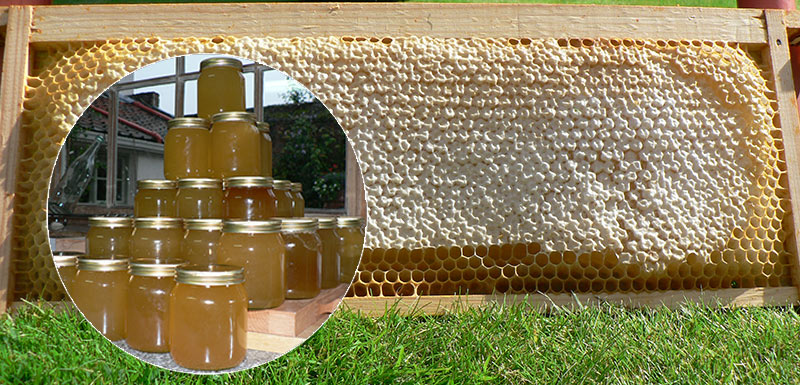
Image: Capped and extracted honey
I think they are also believers in savings products like Metfriendly’s. Come with me on this… it works, I promise… When a bee saves, she does it a little at a time when the nectar flow is thin, and in larger amounts when it is flowing well. When the nectar returns are very good, bees don’t harvest it all: they always leave some in place to ensure there is continuity for the next year, when the flow may not be so good, protecting the community in the longer term. This is how our With-Profits savings work: when there are very good investment returns, we distribute most of them to our Members in that year, but hold back a little to ensure there is something to distribute the following year.
Finally, I want to come back to communication. Like the bees, we rely on our Members talking to us about what they want and need from us. I would be delighted to hear from you about what you like about your Society, and what you want us to improve. You can join over 1,000 other Members by joining our Member Panel by clicking the button below, or if you prefer, click here to send me an email. And when we meet, if you ask nicely, we can waggle dance together, too.
Annette Petchey, CEO Metfriendly

